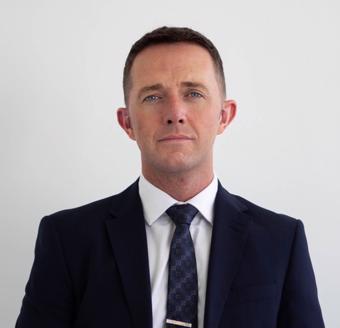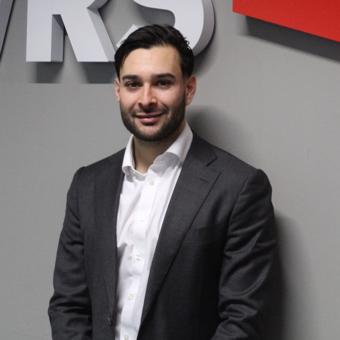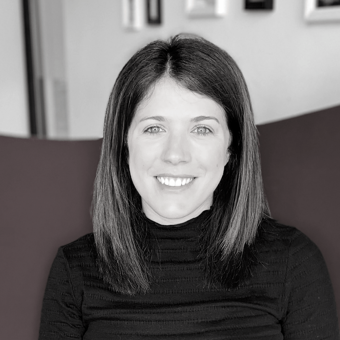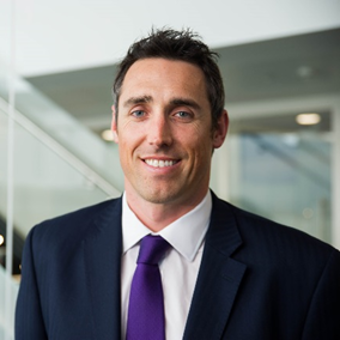Britton and Time Solicitors is a fast-growing practice with offices in Brighton and Mayfair. Its founder tells The Brief about his route into the profession, buying a law firm shortly after qualifying and a recent case that has clarified the law on undue influence and coercion.
No two lawyers’ routes into the profession or career trajectories are identical. However, by most measures, Paul Britton, founder of Britton and Time Solicitors, doesn’t conform to the stereotypes that might attach to the profession.
Growing up in humble circumstances in Slough (“when I was two years old we had vegetable crates as furniture, we were so poor,” he says), he gained a powerful work ethic from his father, who established an engineering business which he went on to sell when Britton was in his late teens.
“As my parents accumulated wealth, we moved to a better house and a better area, but there was never any money around for things like public schooling – it was always state schooling,” he continues.
Britton was the first member of his family to attend university. However, that comes later.
First, after leaving college, he established a successful career in business development management, working first for Peter Jones’ Phones International Group, then the digital side of FTSE100 the Daily Mail and General Trust, and finally Daytona Motorsport, where he was Group Sales Manager.
These roles involved not just sales but also identifying synergies and complementary products within the groups for which he worked, and, at Daytona, on centralising the organisation’s sales processes.
Back to (law) school
In his mid-20s Britton decided that he wanted to do something different and more challenging. He considered medicine but wasn’t keen on the prospect of working in hospitals, so settled on the law and embarked on a degree at Buckinghamshire New University.
Upon graduation in 2012 he initially planned to return to corporate life but was persuaded by a friend to accompany her to a University of Law open day and ended up signing up for his LPC. Upon completion of this, he then accepted a training contract with London-based Devereaux Solicitors, with whom he qualified in 2017 and then spent just over a year as a consultant.
“By the time I began my training contract I was in my 30s, so I was a mature student and quite a mature trainee solicitor,” he says.
I think it was quite easy for my boss because he didn’t have a 20-something complaining that ‘I can’t do this’ and ‘I can’t do that.’ I was a grown-up and I just got on with it.
Britton and Time
The can-do, entrepreneurial attitude that made him a model trainee meant, however, that he soon got itchy feet.
“I think I was too old, really, to work for people, having been given so much autonomy in all my previous roles,” he explains.
It was quite weird working for someone and being told what to do, so I started looking at setting up a law firm.
There was, however, one significant impediment: the SRA’s requirement that the principal of any law firm must have at least three years’ post-qualification experience. Not to be put off so easily, though, “I thought, OK, what happens if I buy a law firm?
“So I started looking for one for sale, and found the sole practitioner firm, Martin Ross Solicitors in Brighton, which I acquired in late 2018.
“And then when Martin retired at the end of 2019, we wrote to the SRA, explaining that I had been running the firm as part of its succession plan and asking for an exception, which they granted.”
Britton’s original plan was to operate as a sole practitioner, with the support of an administrator. A little over four years later, however, the firm employs almost 50 people and in its most recent financial year turned over £2.4 million.
It now operates from a 3,500 sqft office in Brighton, with a lease about to be signed for another similar-sized office in the city. For the past two years, Britton and Time has also had an office in Mayfair, where eight of the firm’s lawyers, including Britton himself, are currently based.
Britton’s background is in civil litigation, but the firm is now well on its way to being a full-service private client and commercial practice. Current practice areas for the firm include civil litigation, private client, family, privately funded criminal defence, commercial property and employment.
This summer the firm plans to add a corporate and commercial offering, and longer-term is also looking at developing a high-end conveyancing practice, which would, as well as dealing with the transfer of residential property from one individual to another, also include the other things homebuyers need, such as wills and advice on the best ownership structure for their relationship status.
Brand building
Britton maintains a high profile in the media, featuring regularly on programmes including Good Morning Britain as a legal commentator. He compares the experience of appearing on TV to that of attending court, explaining that while it is at first daunting, over time it becomes less stressful.
“You still take it seriously but you’re just a lot more comfortable and relaxed,” he explains.
The point of the media work he does, he continues, isn’t about him as an individual. “It’s about the firm’s brand,” he says.
“It’s about clients coming to Britton and Time; it’s just another revenue stream. So that’s why I do it, and why I encourage the other solicitors here to do it, although a lot of them don’t seem to want to!”
Undue influence
Every fast-growing business, and indeed media commentator, needs strong foundations, and Britton and Time already has some important case law under its belt.
Paul Britton was solicitor for Rita Rea in her successful Court of Appeal hearing in the case of Rita Rea v Remo Rea and others. The case centred on whether Ms Rea had unduly influenced her elderly mother, Anna Rea, to change her will in 2015, a year before her death.
The new will left Anna’s home, in its entirety, to Rita, who had dedicated many years to caring for her mother and had no career or home of her own. It superseded a previous will, dating from the 1980s, which had divided Anna’s estate equally between Rita and her three brothers.
The three brothers had challenged the new will, alleging that their mother had been subjected to “undue influence”. They lost their first attempt to overturn the will in the High Court but were successful at a second hearing in summer 2023, after which Britton and Time were instructed by Ms Rea to handle her subsequent appeal.
As well as providing justice for Ms Rea, Britton says the judgment, handed down of 24 February this year, is now “the leading authority on coercion and undue influence”.
“Just because someone changes their will, it doesn’t mean they have been coerced to do so,” he continues.
There’s an argument that if the will had been around since 1986 then it was more plausible that it needed updating than that it didn’t.
The case, he says, has clarified what was previously a very grey area: “Where the bar is in terms of proving undue influence is now much more set in stone. It is now much more certain.”
Legal privilege
The Rea case is a good example of the privileged position in which Britton says lawyers find themselves, and why he welcomes the regulatory scrutiny that attaches to the profession.
“Accountants and solicitors are professionals, but we are only professionals because of how rigid and stringent the rules are that our regulator sets out for us to ensure that we maintain the trust of the public,” he says.
People’s futures are genuinely in our hands. What happens in a courtroom might just be another job for you, but it’s going to be with your client for the rest of their life.
He compares the role of a lawyer to that of a surgeon performing an operation on a patient.
“If you mess it up it can have life-changing consequences,” he says. “So, we have to do the best we possibly can and remember that although there are lots of rules and guidance, it is a real privilege to do what we do.
“It’s not for everyone, and if you want to leave then you’re free to go and do something else, but don’t try to change it.”
Visit
Connect with Paul Britton via LinkedIn










